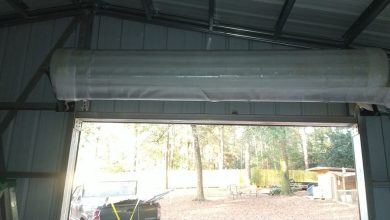How to Determine an Air Conditioner’s Efficiency

When you’re considering air conditioner installation services, one of the most important things you should pay attention to is the air conditioner’s efficiency. But how can you determine what the efficiency of a system is? Read the rest of the blog post below to learn more.
What is AC Efficiency?
AC efficiency refers to how effectively an air conditioning unit can cool your home while using the least amount of energy. Higher efficiency means lower energy consumption and, consequently, reduced energy bills.
Efficiency also affects the environmental impact of your AC system, with more efficient units contributing less to greenhouse gas emissions.
How to Determine an Air Conditioner’s Efficiency
Several key metrics can help you determine an air conditioner’s efficiency:
- SEER (Seasonal Energy Efficiency Ratio): SEER is the most common metric for measuring AC efficiency. It represents the total cooling output divided by the total energy input during a typical cooling season. The higher the SEER rating, the more efficient the unit. Modern air conditioners typically have SEER ratings ranging from 13 to 21.
- EER (Energy Efficiency Ratio): EER measures the cooling capacity per unit of energy consumption at a specific temperature (usually 95°F). While similar to SEER, EER is more focused on peak efficiency during extreme conditions. A higher EER indicates a more efficient air conditioner.
- ENERGY STAR Certification: Air conditioners with the ENERGY STAR label meet strict energy efficiency guidelines set by the U.S. Environmental Protection Agency (EPA). These units are designed to use less energy, saving you money on utility bills while protecting the environment.
- HSPF (Heating Seasonal Performance Factor): If you have a heat pump, the HSPF rating measures the efficiency of the heating component. Like SEER, a higher HSPF rating means better efficiency.
How to Keep Your Air Conditioner as Efficient as Possible
Ensuring your air conditioner operates at peak efficiency involves regular maintenance and a few practical steps:
- Regular Maintenance: Schedule annual maintenance checks with a professional HVAC technician. Regular tune-ups can identify and fix issues before they become major problems, keeping your system running efficiently.
- Change Filters: Replace air filters every 1-3 months, depending on usage and the type of filter. Dirty filters restrict airflow, making your AC work harder and reducing efficiency.
- Seal and Insulate: Properly seal and insulate your home to prevent cool air from escaping and warm air from entering. This reduces the workload on your air conditioner.
- Install a Programmable Thermostat: Using a programmable thermostat can help you regulate your home’s temperature more efficiently, reducing unnecessary strain on your AC unit.
- Clean the Outdoor Unit: Ensure the outdoor unit is free from debris, leaves, and other obstructions. Proper airflow around the unit is essential for efficient operation.
- Use Ceiling Fans: Ceiling fans can help circulate cool air throughout your home, allowing you to set your thermostat a few degrees higher without sacrificing comfort.
By understanding the key metrics of AC efficiency and taking steps to maintain your system, you can ensure your air conditioner operates at its best, providing you with a comfortable and cost-effective cooling solution.




